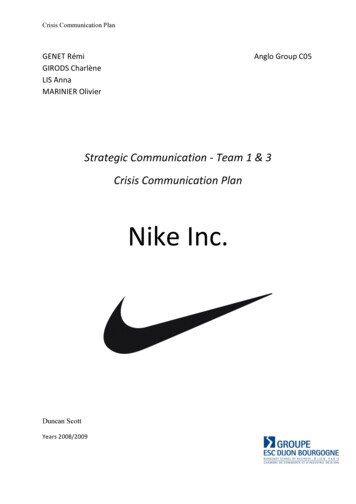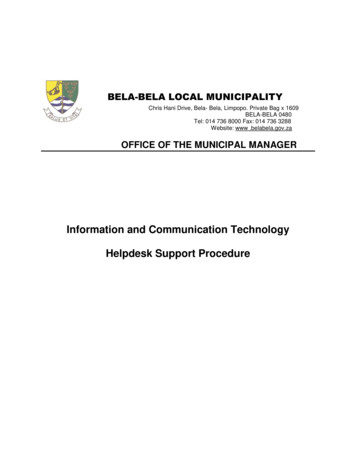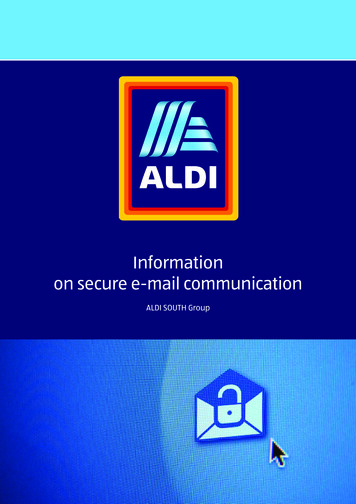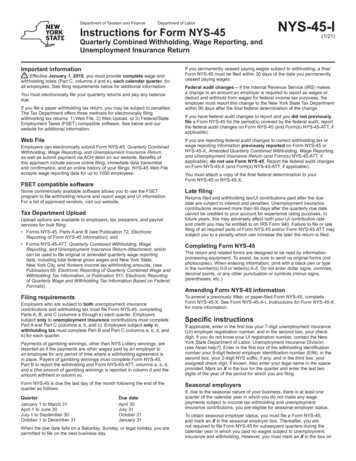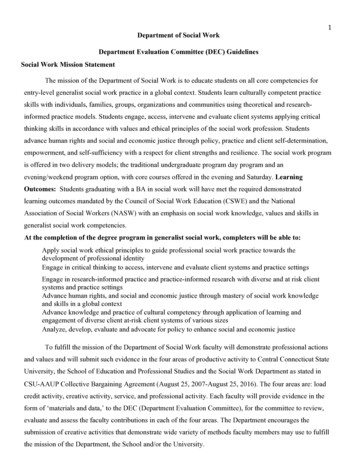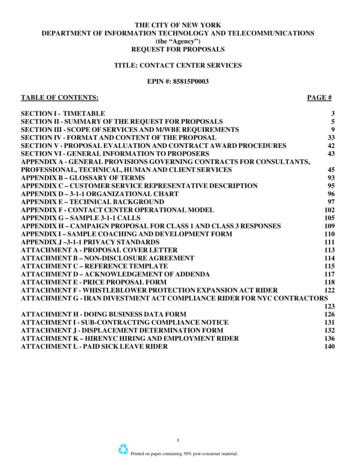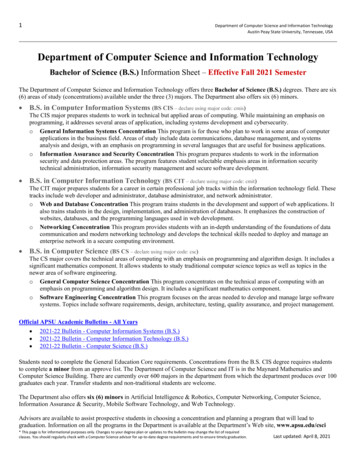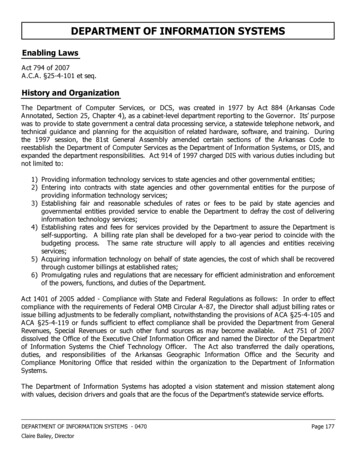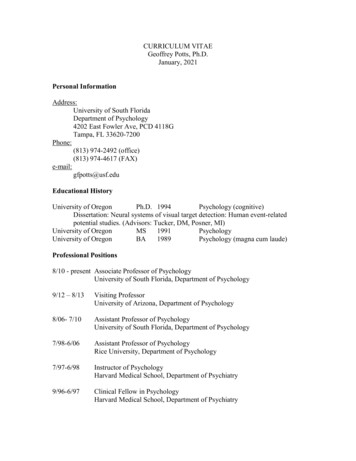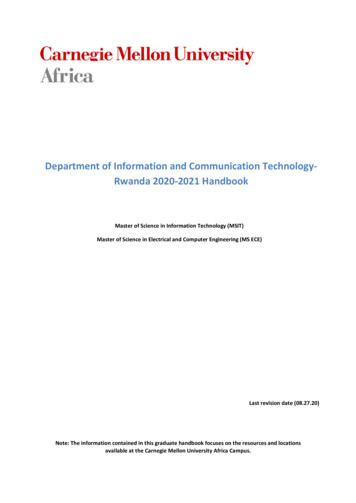
Transcription
Department of Information and Communication TechnologyRwanda 2020‐2021 HandbookMaster of Science in Information Technology (MSIT)Master of Science in Electrical and Computer Engineering (MS ECE)Last revision date (08.27.20)Note: The information contained in this graduate handbook focuses on the resources and locationsavailable at the Carnegie Mellon University Africa Campus.
Table of ContentsTable of Contents2Welcome4Brief Overview of CMU-Africa5MSIT Degree5Concentrations5Core Courses6Internships and Projects6Elective Courses7Independent Study7MSIT Timeline8MS ECE9Full Time vs. Part Time: Working While Studying9University Policies & Expectations9Statement of Assurance Policy10Ethics Reporting Hotline10The Carnegie Mellon Code10Safeguarding Educational Equity /Sexual Misconduct Policy11Assistance for Individuals with Disabilities12Complete CMU Policies12Departmental Resources12CMU-Africa Personnel12CMU-Africa Facilities13Accessing Library Resources14Health Insurance14Return of university property14Security15On-Site Emergencies15CMU Alert Emergency Notification Service15Computing Services15Computing Policy15Best Practices16Andrew User ID and Password17Email17Computing Security17
CMU-Africa Webpage18CMU-Africa Canvas18Student Laptop Policy18Student Services19Student Information Online (SIO)19Schedule of Classes (SOC)19Faculty Course Evaluations (FCE)20To access any of The HUB’s online services:20Exit Interviews20Enrollment20Enrollment Services Forms20Registering for Courses20Academic Advisors/ Faculty Mentors21Academic Calendar21Industry Engagement & Career Services21Degree Attainment and Academic standard Grading Policy22Academic Performance22Policy on Course Add, Drop and Withdrawal by Graduate Students22Course Audit Information23Statute of Limitations for Master’s Degree Studies23Policy on Cheating and Plagiarism23Definition of Cheating and Plagiarism23Academic Disciplinary Actions Overview for Graduate Students24Summary of Graduate Student Appeal and Grievance Procedures24CMU-Africa academic Policies/Protocols25Student Leave Policy25Student Suspension/Required Withdrawal Policy25Withdrawal of a Degree25Maternity Accommodation Protocol25Intellectual Property Policy26Financial issues26Tuition sponsorship26CMU-Africa Financial Aid26Billing & Payments27Extracurricular activities27CMU-Africa Handbook Acknowledgement form28
WelcomeCarnegie Mellon University is on an exciting journey to transform graduate education in Africa. With a history ofexcellence in higher education and global thought leadership in technology innovation, Carnegie Mellon is thefirst U.S. research institution offering degrees in Africa with an in-country presence.Carnegie Mellon University Africa (CMU-Africa) in Rwanda offers a wide range of opportunities for local andinternational industries to engage, including internships, corporate practicums, research collaborations andprograms for sponsoring students through scholarships.You are encouraged to visit https://www.africa.engineering.cmu.edu/ to get more information about CarnegieMellon University in Africa.The Word is Carnegie Mellon University's Student Handbook https://www.cmu.edu/student-affairs/theword/ thiscontains additional information regarding University-wide policies, procedures, resources and opportunities.For any other information about your life at CMU-Africa, feel free to contact our student services at africastudentservices@andrew.cmu.eduVijayakumar BhagavatulaDirector, Carnegie Mellon University AfricaU.A & Helen Whitaker Professor of ECE
Brief Overview of CMU-AfricaCarnegie Mellon University Africa (CMU-Africa) offers Master of Science in Information Technology (MSIT) andMaster of Science in Electrical and Computer Engineering (MS ECE) degrees. Each degree is obtained bycompleting components defined in the degree’s curriculum. Each component is assigned a defined number ofunits. The total number of units of a component represents the average number of hours (including class time,readings, assignments, etc.) that the student is expected to devote per week for that component for a fullsemester. The typical graduate course is of 12 units (i.e., 12 hours per week). CMU also offers half-semesterclasses called “minis”. The average number of hours per week devoted to a mini course should be twice thenumber of units assigned for that mini. The typical mini is of 6 units (i.e., 12 hours per week for half a semester).To obtain the degrees, students must successfully complete a minimum number of units (144 for MSIT and 96 forMS ECE) with an average grade of B. Each degree has further constraints on what courses can be used to satisfythe degree requirements. The degrees are described in more detail in the next two sections.MSIT DegreeThe MSIT degree curriculum offers three different areas of focus: a professional track, a research track, and anentrepreneurial track. The professional track is designed specifically for students interested in developing teamproject skills and become information technology (IT) professionals. The research track is designed for studentsinterested in pursuing a research career or a Ph.D. after their MSIT. The entrepreneurial track is for students whowant to develop their own innovation projects and technology business skills. All three tracks lead to the sameMSIT degree and are distinguished by the coursework and the type of project completed as part of the degree.The tracks have the following main components:Degree ComponentsProfessionalResearchEntrepreneurshipCore Courses60 Units60 Units60 UnitsElective Courses60 Units48 Units60 UnitsPracticum Project24 UnitsResearch Project36 unitsEntrepreneurship Project24 units3-Month Internship0 Units0 Units0 UnitsTotal144 units144 units144 unitsConcentrationsThrough electives, students can choose to take courses in a broad set of areas, or they may choose toconcentrate in an area of focus. Several concentrations are defined including Telecommunications & Networking,Software Engineering, Cyber Security, Data Science, Energy and IT Entrepreneurship. This list will be revised fromtime to time as documented on the CMU-Africa website.5
Concentrations provide course selection guidance for students interested in acquiring skills in specific careerpaths. Concentrations are not compulsory, and they do not lead to a different degree. Students who meet therequirement for a concentration will be given a separate document verifying their achievement.Each concentration defines a selection of courses that are used to meet the concentration requirements. Astudent must complete at least 48 units in a specific concentration with a B (3.0) average in order to beconsidered as having acquired the skills of that concentration. To build practical skills, students should selectinternships and projects in their selected concentration.Core CoursesAll MSIT students are required to take the following core courses as part of the MSIT curriculum, by selecting 12units in each of the 5 core areas available for a total of 60 units as follows: Students shall take 60 core unitsconsisting of 12 units in each of the following areas:1. IT Entrepreneurship,2. Software,3. Applied Machine Learning,4. Secure IT Networks, and5. Leadership and Professional Skills.IT EntrepreneurshipSoftwareApplied MachineLearningSecure IT NetworksLeadership andProfessional Skills04-61104-63018-78518-63104-601Strategic Use ofInformation inEnterprisesData Structuresand Algorithms(12 units)(12 units)04-61318-641ICT BusinessEconomics andFinanceDesign Patterns forSmartphoneDevelopment(12 units)(12 units)Data Inference andIntroduction toApplied Machine Information SecurityLearning(12 units)(12 units)11-785Introduction toDeep Learning(12 units)First Year Seminar(6 units)04-64104-605Fundamentals ofTelecommunicationsand ComputerNetworksSecond YearSeminar(6 units)(12 units)Internships and ProjectsMSIT InternshipMSIT students are required to complete a 10-12 weeks full-time internship prior to completing their degree.During an internship, students work as short-term employees of an organization to gain technical and professionalexperience by being immersed in a business environment performing real IT and engineering work for the hostorganization.6
Students must be employed under contract by the organization during their internship. It is expected that theinternships provided by these companies will be paid in the form of a stipend – a fixed amount of money that isremunerated on a monthly basis. Students are expected to produce the results as defined in the temporaryemployment contract.Under extraordinary circumstances, the internship requirement may be waived, with permission from the CMUAfrica director.Master's Practicum Project (professional track)The practicum provides an opportunity to consolidate and apply the skills and knowledge developed in previouscoursework in a team-based effort to solve a real problem. A team of students works with a client on a real-worldproblem of value to the client. Most importantly, this is an opportunity to apply the team's advanced engineeringand management skills, including the specialized knowledge and skills needed to solve a real problem. Inparticular, team members must learn to work effectively with clients, quickly understand their problem,negotiate deliverables and then select, adapt and apply just the right amount of process and documentation tomeet clients' needs and effectively manage the project.Master’s Research Project (academic track)The research project is conducted under the supervision of a faculty research adviser who first approves theproposed research project based on the student’s skills and mutual research interests. The research adviser andthe student define and approve a study plan appropriate for the research. The research project will lead to apresentation and defense of a thesis in front of a committee and may lead to the submission of a scholarly paper.Master’s Entrepreneurship Project (entrepreneurship track)The entrepreneurship project is an opportunity for students to build and practice skills in developing informationtechnology ideas that create value for a selected set of customers. Students work in small teams on a concreteproject to bridge the gap between entrepreneurial theory and practice. This project combines both independentteam study and working with technical and professional mentors to apply concepts in the creation of a newinformation technology venture. Only a small number of students are expected to be allowed into theentrepreneurship project, based on a highly-selective process that assesses the entrepreneurship project that thestudent team proposes.Elective CoursesElective courses will be offered in a variety of areas related to the technology and business of ICT. These courseswill be offered by resident CMU-Africa faculty, faculty from other CMU campuses and visiting faculty throughshort-term visits and distance learning.Students can select up to 60 units of elective courses in the MSIT program. Online elective courses cannot exceed12 units (out of 60 units). Exceptions have to be approved by the Director of Academics.Independent StudyStudents can perform an Independent Study under the supervision of a faculty member to focus on a subject ofparticular interest to them. Independent study can count for 3 to 15 units towards the MSIT degree. The studentis required to obtain approval from the faculty supervisor on the topic and plan of study. Then both will sign theform for approval.The Independent Study option is not available for students choosing the MSIT academic track.7
MSIT TimelineThe MSIT degree is designed to be completed in three or four semesters, plus a three-month internship. A typicalfour-semester schedule is outlined below. Students can complete the program in three semesters by taking oneadditional 12-unit course in two of the first three semesters.Semester 1 (late Aug - Dec)Two core courses24 unitsOne elective course12 unitsSemester 2 (Jan - mid-May)Two core courses24 unitsOne elective course12 unitsFirst year Seminar6 unitsMSIT Internship (mid-May – mid-Aug)Semester 3 (Aug - Dec)Master's Practicum24 unitsOne core course12 unitsSecond year Seminar6 unitsSemester 4 (Jan - May)Two elective courses24 unitsTotal Units144 units8
MS ECEElectrical and computer engineering (ECE) comprises a broad and diverse set of areas and permeates nearly allareas of application of importance in society today. ECE ranges from nanotechnology to large scale systems andimpacts areas such as communications, computing and networking, energy and cyber-physical systems,biotechnology, robotics, computer vision, information storage and security, data analytics, distributed systems,and privacy. Faculty and students in ECE seek to advance education and technology in all areas of this field andare engaged in teaching and research that advances both the fundamentals of the field through advances inmaterials, devices, circuits, signal processing, control, computer architecture, and software systems as well asthrough the design, building and demonstration of systems at all scales. This is a dynamic and exciting field to bea part of and the Department of Electrical and Computer Engineering offers the very best programs at all levelsfor students to engage in this field.The MS ECE degree at CMU-Africa is one and the same degree as is offered on the main campus in Pittsburgh.The Pittsburgh campus manages the MS ECE degree and graduation requirements. For detailed information onthe MS ECE program, including the course requirements and curriculum, please refer to the main ECE website.You will be assigned an ECE faculty member at the CMU-Africa campus to be your advisor.Full Time vs. Part Time: Working While StudyingThe MS ECE and MSIT programs are intended to be full time programs. Full time is defined as signing up for andmaintaining at least 36 units throughout the semester. Dropping or withdrawing from classes so that theremaining classes total to less than 36 units does not qualify as maintaining full time status. Full time status mustbe maintained by students who are on a scholarship or other financial aid. In a student’s final semester, they maytake less than 36 units as long as this allows them to complete their degree. In semesters with fewer than 36units, the tuition is prorated relative to 36 units. Students spending a semester in Pittsburgh must maintain atleast 36 active units of technical course even in if it is their last semester (withdrawal units, pass-fail units will notbe considered to make up for full time units)Students who wish to work while pursuing their CMU degree should discuss this with the Academic ServicesCoordinator and their academic advisor. Most students who have tried to work while studying have failed coursesor dropped out of the degree program. In no case should a student work while receiving a scholarship withoutwritten approval of the scholarship sponsor.University Policies & ExpectationsIt is the responsibility of each member of the Carnegie Mellon community to be familiar with university policiesand guidelines. In addition to this departmental graduate student handbook, the following resources areavailable to assist you in understanding community expectations. Please review them. The Word/Student Handbook: https://www.cmu.edu/student-affairs/theword/ Academic Integrity Website: ife/academicintegrity.html University Policies Website: www.cmu.edu/policies/ Graduate Education Website: http://www.cmu.edu/graduate/policies/index.html9
College of engineering graduate student’s ent of Assurance PolicyCarnegie Mellon University does not discriminate in admission, employment or administration of its programs oractivities on the basis of race, color, national origin, sex, handicap or disability, age, sexual orientation, genderidentity, religion, creed, ancestry, belief, veteran status or genetic information. Furthermore, Carnegie MellonUniversity does not discriminate and is required not to discriminate in violation of federal, state or local laws orexecutive orders.Inquiries concerning the application of and compliance with this statement should be directed to the universityombudsman, Carnegie Mellon University, 5000 Forbes Avenue, Pittsburgh, PA 15213, telephone 412-2681018. Obtain general information about Carnegie Mellon University by calling 412-268-2000.Carnegie Mellon University publishes an annual campus security and fire safety report describing the university'ssecurity, alcohol and drug, sexual assault and fire safety policies, and containing statistics about the number andtype of crimes committed on the campus, and the number and cause of fires in campus residence facilities duringthe preceding three years. You can obtain a copy by contacting the Carnegie Mellon Police Department at 412-2682323. The annual security and fire safety report also is available online at www.cmu.edu/police/annualreports.Information regarding the application of Title IX, including to admission and employment decisions, the sexualmisconduct grievance procedures and process, including how to file a report or a complaint of sex discrimination,how to file a report of sexual harassment, and how the university responds to such reports is availableat www.cmu.edu/title-ix. The Title IX coordinator may be reached at 5000 Forbes Ave., 140 Cyert Hall, Pittsburgh,PA 15213; 412-268-7125; or tix@cmu.edu.Obtain general information about Carnegie Mellon University Africa by contacting africa-info@andrew.cmu.edu .Ethics Reporting HotlineThe health, safety and well-being of the university community are top priorities at Carnegie Mellon University.CMU provides a hotline that all members of the university community should use to confidentially reportsuspected unethical activity relating to financial matters, academic and student life, human relations, health andcampus safety or research.Students, faculty and staff can anonymously file a report by visiting www.reportit.net (user name: tartans;password: plaid). All submissions will be reported to appropriate university personnel. The hotline is NOT anemergency service.The Carnegie Mellon CodeStudents at Carnegie Mellon, because they are members of an academic community dedicated to theachievement of excellence, are expected to meet the highest standards of personal, ethical and moral conductpossible.These standards require personal integrity, a commitment to honesty without compromise, as well as truthwithout equivocation and a willingness to place the good of the community above the good of the self.Obligations once undertaken must be met, commitments kept.10
As members of the Carnegie Mellon community, individuals are expected to uphold the standards of thecommunity in addition to holding others accountable for said standards. It is rare that the life of a student in anacademic community can be so private that it will not affect the community as a whole or that the abovestandards do not apply.The discovery, advancement and communication of knowledge are not possible without a commitment to thesestandards. Creativity cannot exist without acknowledgment of the creativity of others. New knowledge cannot bedeveloped without credit for prior knowledge. Without the ability to trust that these principles will be observed,an academic community cannot exist.The commitment of its faculty, staff and students to these standards contributes to the high respect in which theCarnegie Mellon degree is held. Students must not destroy that respect by their failure to meet these standards.Students who cannot meet them should voluntarily withdraw from the university.The Carnegie Mellon Code can be found on-line at: https://www.cmu.edu/student-affairs/theword/NOTE: It is the responsibility of each member of the Carneg
Carnegie Mellon University is on an exciting journey to transform graduate education in Africa. With a history of excellence in higher education and global thought leadership in technology innovation, Carnegie Mellon is the first U.S. research institution offering degrees in Africa with an in
